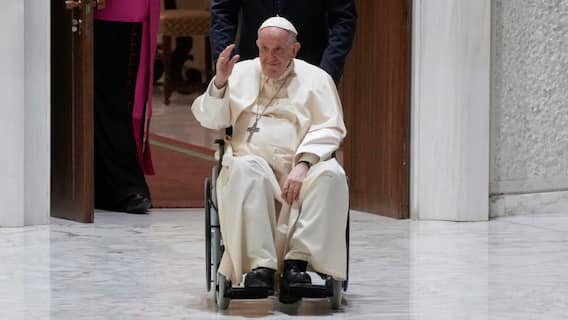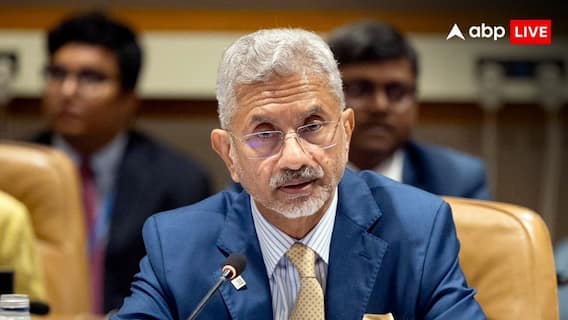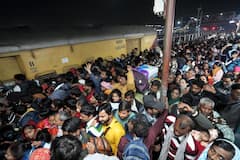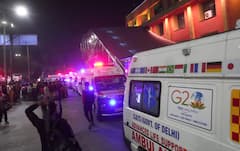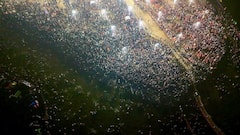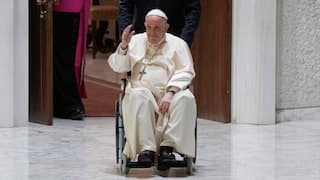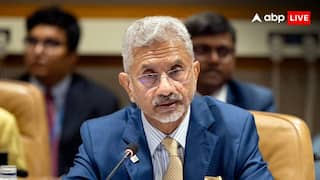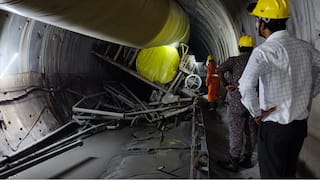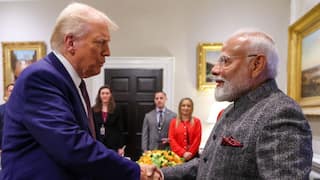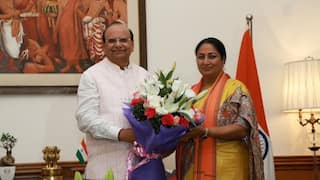Who Was Dr RG Kar? Philanthropist Who Gave Kolkata Asia's First Non-Govt Medical College
Founded by Dr Radha Gobinda Kar in 1886, Kolkata's RG Kar Medical College has a rich history. It played a significant role in shaping the healthcare system of West Bengal.

Kolkata’s RG Kar Medical College and Hospital, an institution with a history that spans over a century, is currently in the spotlight for deeply troubling reasons. A post-graduate trainee doctor was found dead on the premises last week, and according to the police, she was raped and murdered. While the accused, Sanjay Roy, has been arrested, the incident has triggered protests across the country, with resident doctors of government hospitals announcing an indefinite strike, severely disrupting medical services.
This tragedy has drawn the nation’s focus to RG Kar Medical College, which has long been a cornerstone of Kolkata’s healthcare system. Established in 1886, the institution was the first non-government medical college in Asia and played a pivotal role in shaping healthcare in West Bengal and beyond.
The medical college was founded by Dr Radha Gobinda Kar, who was the first secretary of the institution and remained in the post until his death in 1918.
The Government of West Bengal took over the erstwhile private college on May 12, 1958. It is affiliated to the West Bengal University of Health Sciences (WBUHS), and recognised by the Medical Council of India (MCI). It offers undergraduate (MBBS) and postgraduate (MS/MD) medical education, besides post-doctorate (DM/MCh), PG Diploma, and Fellowship programmes in various disciplines.
ALSO READ ON ABP LIVE | Who Is Sanjay Roy? Kolkata Civic Volunteer Accused Of RG Kar Doctor’s Rape And Murder
Who Was Dr RG Kar?
Radha Gobinda Kar was known as a visionary philanthropist, who had started the medical college from a rented house on the Baithakkhana Bazaar Road in the heart of erstwhile Calcutta.
Born on August 23, 1852, during British rule, Kar, son of a physician father, pursued medical education at the Bengal Medical College, which was then Asia’s oldest medical college and later came to be known as the famous Calcutta Medical College. After graduation, he went to England's Edinburgh for further studies and returned with medical degrees in 1886.
Upon his return, he "realised that the prevailing colonial culture was a great hindrance for the people at large, to get the benefit of the existing medical schools—both, as students and as patients", a 2011 article published in the US National Library of Medicine (NLM) quotes the authors as saying.
That's how the thought of establishing a new medical school came to Kar’s mind, and 'The Calcutta School of Medicine' came into being that same year he returned from England.
According to the NLM article, the duration of the first medical course offered at the college was three years, and the medium of teaching was Bengali. It says donations to set up the college came from across Bengal.
ALSO READ ON ABP LIVE | Kolkata Doctor Death: RG Kar Principal Resigns, Medicos Call Nationwide Strikes
From Calcutta School of Medicine To RG Kar Medical College
From the rented Baithak Khana Road building, the college first moved to Bowbazar Street, also in central Calcutta. It had no hospital attached to it then, and hence students had to go to the 24-bed Mayo Hospital in Howrah for training.
In 1898, around 4 acres (12 bighas) of land was purchased — apparently for Rs 12,000, according to a report in The Telegraph — in Belgachia, the present site, to construct the college building. Four years later, in 1902, then Governor Lord Woodburn inaugurated a 30-bed, single-storey hospital building, which was named after the UK royal, Prince Albert Victor.
Two more storeys came up subsequently, and the original building has retained the same shape even today, though several other buildings have since come up around it to house various departments.
In 1904, the college saw its merger with a similar institute “College of Physicians and Surgeons of Bengal” which was set up in 1895. The Calcutta School of Medicine eventually became the ‘Belgachhia Medical College’ in 1916, with the then Governor General Lord Carmichael formally inaugurating it.
Kar passed away two years later, on December 19, 1918. Before his death, the college had seen several glorious moments. Calcutta University gave affiliation for the Preliminary Scientific MB course in 1916 and extended it up to the first MB standard the next year. As many as 100 students were given admission, according to the NLM article.
A year after Kar’s death, in 1919, Calcutta University granted affiliation to the college for the final MB standard. Since Lord Carmichael had been instrumental in ensuring these developments, the article said, the college was named Carmichael Medical College as a mark of gratitude.
The college gradually got its surgical building, an anatomy block, and the first-ever psychiatry OPD in Asia. Sir Kedar Nath Das maternity hospital was established on the campus in 1935, and a separate first-of-its-kind cardiology department came up in 1939.
By the time India got Independence from the British, the college had become a renowned institution.
Months after Independence, on May 12, 1948, the college was renamed after its founder Dr RG Kar.
ALSO READ ON ABP LIVE | Bleeding From Private Parts, Neck Bone Broken, Smothered To Death: Horrific Details From Kolkata Trainee Doctor's Autopsy
Over A 100-Year-Old Legacy
In 2016, West Bengal celebrated the centenary year of RG Kar Medical College and Hospital, commemorating its 1916 formal inauguration as Belgachia Medical College.
At present, the 1,210-bed hospital complex spread across 15 acres has 10 buildings and seven hostels.
At an event held in 2015 to mark the beginning of the centenary celebrations, Sushanta Banerjee, a former student and then director of medical education, had pointed out how the college was an important part of the freedom struggle.
In a lighter vein, state minister Shashi Panja, a medical practitioner and RG Kar alumna, shared how people looked down upon the college because Belgachia was not considered part of proper Calcutta town back then.
"Khaler college (College by the canal) would be the stock response when we said where we were studying," she was quoted as saying in the Telegraph report cited above.
The college that had started with an affiliation for 48 students now takes in 150 students annually for its MBBS course. Additionally, there are seats for several other courses in medical and paramedical disciplines. The college also has a School of Nursing that trains 45 students every year, and a College of Nursing that provides B.Sc. Nursing course.
Check out below Health Tools-
Calculate Your Body Mass Index ( BMI )
Trending News
Top Headlines











